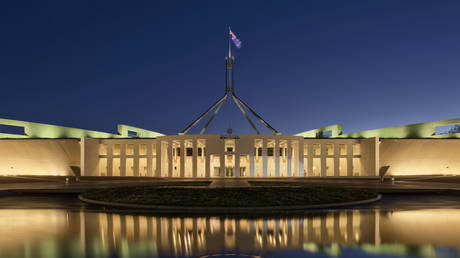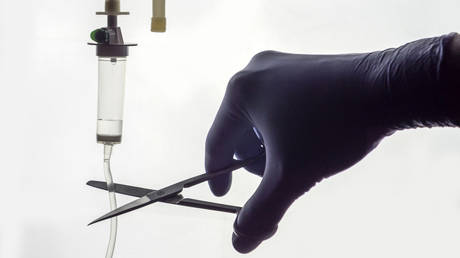
A proposal by two Australian politicians to conduct drug and alcohol testing in parliament has caused controversy on social media as critics fling accusations of ‘whataboutery’, while supporters say it’s about time!
Speaking on the need to ensure safe work environments for women, Liberal party MPs Katie Allen and Sarah Henderson on Sunday floated the idea of instituting limits on alcohol in parliamentary workspaces and mandating regular drug testing and breathalyzers while working.
“MPs and senators are not that special. We are here to serve the community, and I’ve heard a few rumours about drugs,” Henderson said, appearing on ABC’s Insiders program on Sunday.
Clarifying that she had not heard allegations against anyone in particular, the senator from Victoria added that parliament needs to be “the best possible workplace.”
Meanwhile, Allen, a first-time MP from Victoria, proposed an outright ban on alcohol at Parliament House, after having witnessed an “underlying lack of professionalism” in the building.
“We need to have at least responsible drinking. But even ministers have said to me, ‘I think even a dry environment might not be a bad thing for Parliament,’” Allen said during the program.
Over the past month, Australia has been rocked by a series of allegations of rape, sexual harassment, and sexism against parliamentarians that has prompted nationwide debate on ‘work culture’ reforms.
The comments – which appeared to be supported by Prime Minister Scott Morrison – came after Queensland MP Andrew Laming stated he would leave politics at the next election after a barrage of accusations alleging numerous instances of bad behavior towards women.
However, the proposals prompted furious debate on social media, as some users thought blaming drugs and alcohol shifted the blame away from “creeps” and “entitled men,” while others said it was a “good call.”
“No other workplace in Australia has it’s own restaurants and bars and room service. No, drug and alcohol testing is only the start – alcohol must be banned in Parliament House workplace – just like everywhere else in the public sector around the nation,” one user said.
Others were less certain. One skeptic noted, “I’m not sure how I feel about a bunch of alcoholics (functional or otherwise) and many others who use alcohol to manage the difficulties of parliament having to suddenly go dry in one of the most stressful places in Australia.”
Meanwhile, Liberal party deputy leader Josh Frydenberg said he expected the issue of alcohol would be covered in a review of parliamentary culture being conducted by Australia’s sex discrimination commissioner.
“Parliament is an unusual working place. It’s had long hours, it’s particularly intense and we have very important work to undertake,” Frydenberg said.
“But the behaviour and the conduct and the culture that we have seen exhibited by revelations of what has taken place in the Parliament… falls well below community standards and it has to change and it has to change fast,” he added.
The leader of the opposition, Anthony Albanese, said his Labor party was open to any constructive proposals to improve the functioning of Parliament.
Think your friends would be interested? Share this story!




